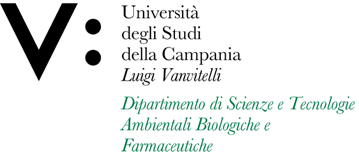Silvio BACCARI
Insegnamento di NETWORK SCIENCE
Corso di laurea magistrale in PHYSICS
SSD: FIS/02
CFU: 6,00
ORE PER UNITÀ DIDATTICA: 48,00
Periodo di Erogazione: Secondo Semestre
Italiano
| Lingua di insegnamento | INGLESE |
| Contenuti | Questo corso fornirà agli studenti una conoscenza dei concetti nel campo dell'analisi di reti, attraverso un'introduzione ai principi di base e ai temi classici che dominano il lavoro teorico in questo ambito. Esso offre un'introduzione interdisciplinare al campo in evoluzione delle reti complesse e alle loro applicazioni pratiche. Coprirà argomenti come la matematica delle reti (teoria dei grafi), l'analisi dei dati e le loro varie applicazioni in settori quali biologia, sociologia, tecnologia e altro ancora. |
| Testi di riferimento | 1) "Network Science" di Albert-László Barabási |
| Obiettivi formativi | Alla fine del corso, gli studenti saranno in grado di: |
| Prerequisiti | Gli studenti sono tenuti a padroneggiare i concetti fondamentali dell'algebra lineare |
| Metodologie didattiche | Lezioni teoriche ed esercitazioni pratiche in laboratorio, utilizzando Python e applicazioni ad hoc. |
| Metodi di valutazione | Il raggiungimento degli obiettivi del corso è accertato attraverso una prova scritta (un progetto) e una discussione del progetto. L'esame orale consiste in domande aperte che consentono di verificare le conoscenze teoriche. I progetti e le loro discussioni saranno utilizzati per valutare la capacità degli studenti di utilizzare i metodi presentati nel corso e di implementare gli strumenti basati su di essi. |
| Altre informazioni | Nessuna |
| Programma del corso | Introduzione alla scienza delle reti |
English
| Teaching language | English |
| Contents | This course will familiarize students with concepts in network analysis field, by an introduction to the basic principles and classic themes dominating theoretical work in this scope. It provides an interdisciplinary introduction to the evolving field of complex networks and their practical applications. It will encompass subjects such as network mathematics (graph theory), data analysis, and their diverse applications in domains such as biology, sociology, technology, and more. |
| Textbook and course materials | 1) "Network Science" by Albert-László Barabási |
| Course objectives | By the end of the course, students will: |
| Prerequisites | Students are expected to master the fundamental concepts of linear algebra |
| Teaching methods | Theoretical lessons and practical exercises in the laboratory, using Python and ad hoc applications. |
| Evaluation methods | The achievement of the course objectives is assessed through a written examination (a project) and a discussion of the project. The oral exam consists of open questions that allow to test the theoretical knowledge. The projects and their discussions will be used to assess the ability of the students in using the methods presented in the course and implementing tools based on them. |
| Other information | none |
| Course Syllabus | - Introduction to network science |








